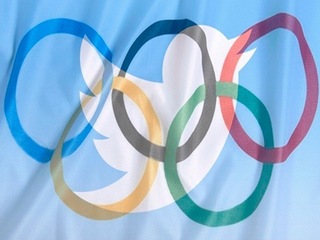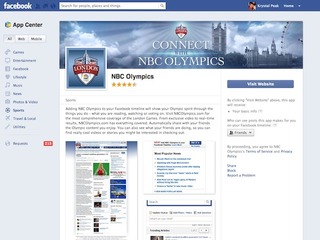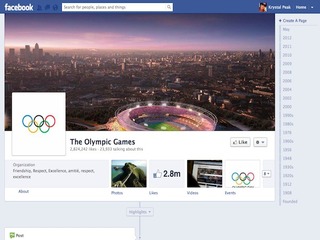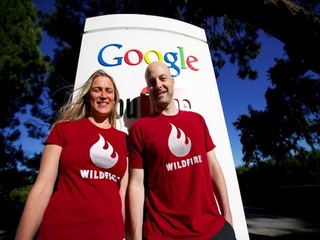M&A activity in the warehouse robotic space
Robots are taking over the heavy lifting work inside warehouses
Read more...
This year's summer games were forever changed by the role that social media and other online technology to show just how much more connected the world can be -- and just how whinny.
Athletes around the globe garnered worldwide followings and social services like Facebook and Twitter allowed viewers to voice their excitement, shock and anger about the games and the old media ways it was being covered.
Since the last summer games in Beijing four years ago, social media has gone from a youthful outlet in first-world nations to the voice of hundreds of millions of people globally. In 2008, there were just six million people tweeting and now more than 600 million people have Twitter handles.
Over the last two years, Facebook has also allowed public figures to create fan pages to communicate with and share personal pictures, achievements and details with fans globally.
When looking at just how social these Olympics were, it is clear that athletes and broadcast media will have to approach things a great deal differently for the next set of games where, I am guessing, several billion people will be voicing their cheers and gripes in real time.
Twitter winners and losers
The biggest loser in the social Olympics, Twitter category, would have to be NBC -- the US official broadcasting network for the summer games. While, leading up to the London events, NBC proclaimed its foresight and efforts to harness the power of the Internet and social media by streaming live Twitter conversations and streaming certain games for viewers to enjoy from work or abroad, but NBC proved to be quite out of the loop on most accounts.
Since the games were held in London (five to eight hours ahead of the US) NBC chose to air many of the games on a time delay so that the most watched events (such as swimming, gymnastics and volleyball) could be aired during US primetime. While this has always been the most logical way to approach the games in the past, that was all before social media and 24 hour news cycles became the behemoths that they are. Fans everywhere were trying to avoid spoilers for five to eight hours and even NBC was screwing up by airing promos that spilled who the medal winners were earlier in the day.
Between the time delay airings and the spoilers, a Twitter hashtag was born and used across the Web: #NBCfail.

NetBase, a social media analysis tool, calculated that there were a whopping 93,000 #NBCFail posts this month, which generated nearly 148 million impressions. My personal favorite offshoot of the NBC fail was a Twitter handle @NBCDelayed where the author tweets extremely old news such as the tweet released on August 2 that read: FLASH: Richard Milhous Nixon announced last night that he will resign as the 37th President of the United States at noon today.
Steven Marx, an occasional Twitter user who first used #NBCFail on a whim, achieved more acclaim during the Olympic Games that the fallen television network. PeopleBrowsr, another social media analysis tool tracking the Olympics, revealed Marx as the originator of the hashtag.
According to PeopleBrowsr, on July 27, the day of the ceremony, there were just 212 #NBCFail tweets. By July 28, there were 6,000 and by July 29, the number had risen to 20,000.
NBC has not stated whether it will be approaching the Olympics differently in the future, but it seems clear that changes need to be made now that social media breaks news so instantly and viewers want to be able to watch the biggest games in the world live, not whenever advertisers are willing to pay the most for them.
Following the adamant onslaught of #NBC fails, it was clear that swimmer Michael Phelps was a social Olympics winner with 22 medals, one million Twitter followers and 800,000 Facebook fans. Phelps was also the most tweeted about considering he lost some races that most thought he had in the bag and he broke the record of most decorated Olympian with not just he 20 he needed, but 22 medals.
An unexpected winner in the social Olympics was the very socially active and popular Usain Bolt. Before the Olympic Games, Bolt had 7.6 million Twitter followers and Facebook fans. Then, after his gold-medal Olympic record in the 100 meters, he’s eclipsed 8.5 million.
When Bolt won the 200-meter final, Twitter exploded its past record of tweets per minute contained his name with more than 80,000 TPMs.
Facebook fan base growth
Twitter wasn't the only place people went to talk about and listen to the athletes. Facebook fan pages swelled during the games to show support and share discussions for each athlete individually. Gabrielle Douglas grew her Facebook fan base by 3,944% and Marcel Nguyen growing his fan base by 2,451%, according to Wildfire ( a four-year-old Web promotions company just recently bought by Google.)

This type of fan base growth that is so measurable can more easily be translated into future promotions and sponsorship deals for the athletes and their teams. But not all fans are the same. Some athletes, like Steve Lewis, Camille Muffat, Automne Pavia have the most engaged fan bases -- which means better deals for the future.
Athletes from certain countries also shot ahead of the usually Web savvy Americans, such as Jamaica. The small island nation had the top global reach due to Usain Bolt's million Facebook likes.

Switzerland has the second highest global reach due to the widespread popularity of Roger Federer, a professional tennis player and Russia placed third because of Maria Sharapova, professional tennis player currently ranked second in the world.
The median growth for Olympics athlete pages was over 9x that of UEFA athlete pages and over 7x that of Tour De France athlete pages, showing just how engaged the viewers of the Olympics are.
During the Games, athletes’ fans posted 6x as much as UEFA fans and 2x as much as Tour De France fans, and are commenting on athletes’ posts 9x as much as UEFA fans and 3x as much as Tour De France fans.
And since this year there were very few rules or restrictions on athletes using social media, it also looks like the next Games will spell out more rules and guidelines to follow, especially if hundreds of millions are listening on these services.
(Image Source: Bunow)
Robots are taking over the heavy lifting work inside warehouses
Read more...The company also expanded access to 12 different provider types for male fertility care
Read more...Ezra's AI cancer screening platform will be available in 150 RAYUS locations
Read more...



